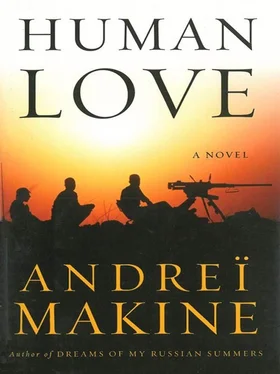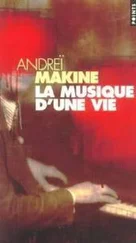The state of the dogs health necessitated an extended course of treatment, with two weekly injections. The priest accepted this version in good faith. Elias would call on the vet, leave Boko to run about in the garden, and, with a pounding heart, settle down to listen to this strange white man, this Portuguese who wanted to change the world. Carvalho was married to an Angolan woman, not all that unusual a situation for a colonial. What was unusual was that he had not made a servant of his black wife. “You see, Elias, she’s the one who welcomes us into her country, not the other way round. One day the whites will have to understand this. Yes, we need a real revolution in people’s minds.”
It was at his house that Elias read the works of Marx for the first time, and believed he had found in them what he had grievously lacked: the certainty that the world of human beings was neither predestined nor irremediable and that it was therefore possible to transform it, make it better, root out the evil from it. One could erase from this world the room with yellow walls where an ugly, naked man hopped up and down before a woman who sold him her body for the price of a meal. In this transfigured world a man covered in dark wounds would not be left out in the middle of a prison courtyard crammed with human ghosts. And there would not be a woman’s slender, fragile collarbone, smashed by a soldiers boot… Years later he would study Marx in Moscow, arguing about it with his comrades. But his first reading would remain the most vivid, thanks to this promise of a fight against the evil that God tolerates.
Carvalho had known Elias s father, but there was a serious ideological difference between them. The vet maintained that, according to Lenin, revolution could not lead to victory without a revolutionary situation being created in advance. It was therefore necessary to wait, to prepare the ground, to raise the political consciousness of the masses. Whereas his father followed a voluntarist line advocated by Trotsky, hoping to conquer with the help of a small group of revolutionaries cut off from the people. Lenin called this strategy the “infantile disorder of leftism.”
One secret confided in him made a much greater impression on Elias than all these theoretical distinctions: Carvalho remained in touch with his fathers comrades, and from time to time was visited by his contact agents.
At the start of the following year, 1965, one of these spent several days in hiding at the vets house. Elias met him and heard an account of their struggle in the eastern Congo. During the course of two sleepless nights he made his decision: he would leave with this man to join his fathers companions. He could no longer wait for the famous “revolutionary situation.” For the revolution’s heart was already beating somewhere in the darkness of the Congolese jungle.
“The revolutions heart,” “the darkness”… He was fifteen, and it was in such terms that he pictured the world. But, most of all, he wanted his father to know how his mother had died.
SO HERE WAS WHERE THE REVOLUTIONS HEART was beating: in this village of the eastern Congo in the Kivu hills. Before his arrival there, Elias had pictured the clash of arms, faces etched by combat, fiery speeches, heroism and sacrifice, words whispered on the brink of death, warriors with proud, manly features. The revolution…
The first thing he saw bore no resemblance to any of that. Two women were preparing a meal in front of a hut, placidly arguing all the time, kneading the dough on the bare plank of the table. Their language was unknown to him, and this made the scene even more commonplace; it would have been the same in Angola or anywhere else, whatever the country, whatever the language. One of the women was big and mature, very fleshy. Her large, almost bare breasts, smeared with flour, swung heavily over the table, colliding with one another at each movement of her arms. The other was very young, with a smooth body and lithe buttocks. There was washing hung out on a line to dry, an almost homely mixture of mens shirts, towels, women’s underwear…
Numb with exhaustion after a long journey, Elias wandered about with the feeling that he had penetrated behind the scenes of the revolution, just where its actors were preparing to perform brave deeds, glorious feats of arms. In the alfresco canteen a soldier was asleep, seated at a table, his head resting on the thick planks where a stripped Kalashnikov lay spread out. One of the parts had tumbled onto the ground. Elias picked it up and set It down discreetly amid the rest of the military Erector Set. Another, stationed amid the bushes, was haranguing his audience. Elias drew closer to listen to him and saw that the orator had no one in front of him. He was addressing empty space, his vacuous gaze floated in a cloud of aromatic, slightly acrid smoke. The same, thought Elias, as used to swirl around the children of the streets, the little hemp smokers In Dondo’s shantytown in the evenings. A young warrior crossed the courtyard with a firmly resolute tread, adjusting a submachine gun on his shoulder, as if at any moment he were about to join battle, then stopped, began chatting with the two cooks and laughing.
Life in this backyard of the revolution seemed like a game Elias could not yet make sense of. They had told him his father was due to return the following morning, and he would doubtless be able to explain these relaxed rebels’ extraordinary way of life. Elias had already noticed a whole host of oddities: the drugged orators harangue, the young submachine gunner s unexpected laughter… And at night, in the room next door, the ponderous wrestling of copulating bodies, an utterly banal activity, so little In harmony with the passionate purity he associated with the revolution. By the full moon s phosphorescent light he could see the end of a bedframe and two pairs of feet. The movements of the soles of the feet reflected the pleasure taken. At one moment the mans right foot was waving wildly and dug a hole In the mattress. It was ridiculous. Pleasure is ridiculous when there’s no other bond between us, thought Elias. The toes curled, as if in a fit of cramp, then relaxed. The foot expressed everything, from feverish desire to final collapse. The woman was the fat cook he had seen on arrival. He was old enough to sense that among so many men on their own, the presence of such women was inevitable. But he could not understand why the dream of revolution had not yet taught these men and women to pursue a love different in kind from this brief, breathless jiggling.
… Many years later he would recall the naïveté of the question, while telling himself that this boyish view of revolution and love had not been all that foolish. For what is the point of such liberating turmoil if it does not radically change the way we understand and love our fellow human beings? Then he would realize that ever since that night of the full moon, love had become a secret yardstick for him, a touchstone by which to judge all human activity on this earth.
At first Elias thought a thief had arrived: amid the mists of the small hours a man skirted the neighboring hut, pushed open the door discreetly, then stepped outside again and studied himself in the rectangle of mirror fixed beside the door frame. He smoothed his hair, adjusted the collar of his combat kit, turned round…
Elias recognized his father. He struck him as small (It’s because IVe grown, thought Elias) and was dressed with the lady-killer elegance affected by some military men. His uniform was too tight, overloaded with pockets and buttons. He looked like… a Portuguese officer! Elias moved away from the window, hoping his own words could sweep away this painful first impression. He had so much to tell this man.
Читать дальше









